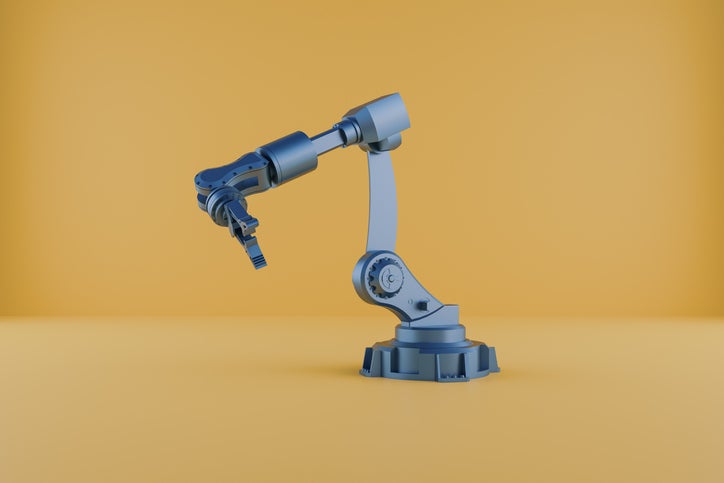
Artificial intelligence is, by its very definition, inauthentic. While this tech can perform basic tasks far more quickly than any human could ever manage, it can never outstrip us in the creativity stakes.
There are merits in using chatbots to help customers to navigate a large, complex website, say, or make the process of booking services more efficient. There are advantages, too, in using AI tools to handle repetitive chores such as processing invoices or producing reams of search-engine-optimised marketing copy.
But it’s easy to understand why many people find such developments unnerving, particularly when these pose a plausible threat to their job security. Those of us who worried about the rise of the robots, as envisaged by dystopian sci-fi films such as The Terminator, were promised that roles requiring creative flair, strategic insight and emotional intelligence would be spared automation. But advanced AI systems such as ChatGPT seem to have given the lie to such reassurances recently by showing an ability to pass exams, write poems, compose music and even direct films.
This is murky territory. BuzzFeed’s share price may have soared when the embattled media company shared plans to publish AI-written articles, but firms that have tried this already have run into problems. The tale of tech publisher CNET is a cautionary one about the ethics of blurring the boundary between journalistic output and bot-generated cookie-cutter content.
‘Humanmade’ is a hallmark of quality
There’s a certain prestige attached to goods with a ‘handmade’ label. The implication is that they require greater craft and effort to produce, therefore warranting a premium price tag. Some people are prepared to spend £5 on an artisan sourdough loaf compared with £1.50 on a machine-produced supermarket equivalent.
What of products that require artistic creativity as well as technical skill? Even if AI can write a poem, it’s unlikely that a human would be moved by it, so what’s the point? Even if a robot can be ‘creative’, it’s only because of what it has been taught by humans. Google may be developing a tool that can convert text into music, but who would truly prefer that to, say, Adele’s expressive songwriting about her experiences of loss and heartbreak?
We humans also crave social interaction. A recent survey by Computer Generated Solutions found that, when it comes to customer service, 86% of consumers would rather deal with a human agent than a bot. It also revealed that 71% would actively avoid a brand if it didn’t give them access to human customer service reps.
The problem is that robots aren’t relatable. They’ve never been in your position. They lack lived experience and cannot provide reassuring anecdotes based on that. Even if they can be programmed to proffer the kind of small talk and pleasantries that help strangers to establish a rapport, why would you bother responding?
Putting people first
AI will undoubtedly have a greater – and highly constructive – part to play in many industries. In science, medicine and manufacturing in particular, human-operated ‘cobots’ are already pushing the performance envelope in terms of speed, accuracy and range.
But other sectors must take care to find the right applications for AI. Using automation to improve efficiency makes sense, but taking things much further on the creative side is fraught with risk. CNET’s articles, written using an unspecified ‘AI engine’, are riddled with mistakes and examples of plagiarism. AI-generated content cannot be truly original; it can only build on what exists.
Companies should be mindful of the message that their adoption of AI sends to both consumers and employees. Some firms are already taking a stand on this issue. For instance, US news site Axios promises readers that “every item will be… produced by a real person with a real identity. There will be no AI-written stories.”
That makes ‘humanmade’ the next battleground in the fight for people’s attention – and money. I’d go as far as suggesting that the responsible use of AI could well become the next big environmental, social and governance issue.
Just as people value enterprises with small carbon footprints or a strong record of inclusivity, the same will be true for companies that understand the value of the human touch. The robots cannot replace us.

Artificial intelligence is, by its very definition, inauthentic. While this tech can perform basic tasks far more quickly than any human could ever manage, it can never outstrip us in the creativity stakes.
There are merits in using chatbots to help customers to navigate a large, complex website, say, or make the process of booking services more efficient. There are advantages, too, in using AI tools to handle repetitive chores such as processing invoices or producing reams of search-engine-optimised marketing copy.
But it’s easy to understand why many people find such developments unnerving, particularly when these pose a plausible threat to their job security. Those of us who worried about the rise of the robots, as envisaged by dystopian sci-fi films such as The Terminator, were promised that roles requiring creative flair, strategic insight and emotional intelligence would be spared automation. But advanced AI systems such as ChatGPT seem to have given the lie to such reassurances recently by showing an ability to pass exams, write poems, compose music and even direct films.
